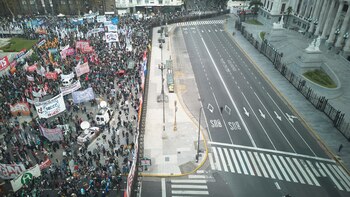
(ATR) Investigative journalist Hajo Seppelt says it is unrealistic to believe that Russian athletics can legitimately clean up its act in time to be re-instated for the Rio 2016 Games.
"Now it depends on the real will of the people of IAAF – if they are just saying something, or if they will react in the way that they should," Seppelt told Around the Rings, referring to Russian Athletics needing to meet guidelines specified by the IAAF Council and to be verified by an inspection team.
"They said already that (it is possible) that the Russians can come to the Olympics in 2016 – I cannot understand how that can work because you are talking about the largest country in the whole world – thousands of coaches, officials, support personnel and politicians," said the German journalist of the wide-spreading doping problem in Russia that he first exposed in his documentaries..
"How can this work in half of a year to clean up the system in Russia," Seppelt asked rhetorically. "I don’t see any reason to believe that it is possible to make this change within a short period time-frame."
Seppelt tipped allegations of the Russian doing scandal, cover-ups and corruption in two ARD documentaries airing last December, the first titled "Top secret Doping: How Russia makes its Winners."
IAAF president Sebastian Coe acknowledged at a press conference in Monaco on Thursday that no timetable for the All-Russia Athletics Federation (ARAF) return can be made as it is unclear how long it will take for the appropriate standards to be satisfied.
"I don’t have the feeling that Sebastian Coe is really interested to ban the Russians," Seppelt said. "For me, if you don’t give them sufficient time of restoring and doing their homework in Russia, then I don’t think that it could work," he said regarding the IAAF approving ARAF to be re-instated.
IOC and EOC presidents Thomas Bach and Patrick Hickey have expressed their support and confidence to Alexander Zhukov and the Russian NOC that guidelines from the IAAF can be met and Russian athletics can be re-instated for international competition prior to Rio 2016.
"Bach said already that he sees a chance for the Russians to come back – does he know what’s happening in Russia, does he know the officials, does he know the structures," Seppelt questioned. "This opinion from the IOC president for me is strange, but he has a lot of influence as we know."
For Russian track and field athletes to compete again, their athletics federation and anti-doping authorities must demonstrate that it has permanently dismantled the "deeply rooted culture of cheating" identified by the WADA commission.
An IAAF inspection team, led by anti-doping expert Rune Anderson, will need to verify that the Russian bodies meet specific criteria laid out by Coe and unanimously approved by his Council on Thursday.
The IAAF Council provisionally suspended ARAF on Nov 13 for their doping transgressions first revealed through Russian "whistleblowers" in Seppelt’s revealing documentaries.
Seppelt said he never imagined that his team’s efforts could ever lead to the uncompromising position that Russian athletics and the IAAF are now faced with.
"We have been surprised at the end that the reaction was so huge all over the world," Seppelt said. "To be honest, when I met Yuliya (Stepanova) and Vitaliy (Stepanov) the first time I realized that this could become a really huge story because it was the first time that whistleblowers from the inside talked about and also provided evidence – audio and videos – so this was really exceptional," he said referring to the two former Russian athletes who gave candid and shocking on-camera interviews.
"In this time, investigative journalists and whistleblowers reach much more than any classical doping test."
Written by Brian Pinelli
Homepage Photo: Getty
20 Years at #1: Your best source of news about the Olympics is AroundTheRings.com, for subscribersonly.
Últimas Noticias
Utah’s Olympic venues an integral part of the equation as Salt Lake City seeks a Winter Games encore
Utah Olympic Legacy Foundation chief of sport development Luke Bodensteiner says there is a “real urgency to make this happen in 2030”. He discusses the mission of the non-profit organization, the legacy from the 2002 Winter Games and future ambitions.

IOC president tells Olympic Movement “we will again have safe and secure Olympic Games” in Beijing
Thomas Bach, in an open letter on Friday, also thanked stakeholders for their “unprecedented” efforts to make Tokyo 2020 a success despite the pandemic.

Boxing’s place in the Olympics remains in peril as IOC still unhappy with the state of AIBA’s reform efforts
The IOC says issues concerning governance, finance, and refereeing and judging must be sorted out to its satisfaction. AIBA says it’s confident that will happen and the federation will be reinstated.

IOC president details Olympic community efforts to get Afghans out of danger after Taliban return to power
Thomas Bach says the Afghanistan NOC remains under IOC recognition, noting that the current leadership was democratically elected in 2019. But he says the IOC will be monitoring what happens in the future. The story had been revealed on August 31 in an article by Miguel Hernandez in Around the Rings

North Korea suspended by IOC for failing to participate in Tokyo though its athletes could still take part in Beijing 2022
Playbooks for Beijing 2022 will ”most likely” be released in October, according to IOC President Thomas Bach.




